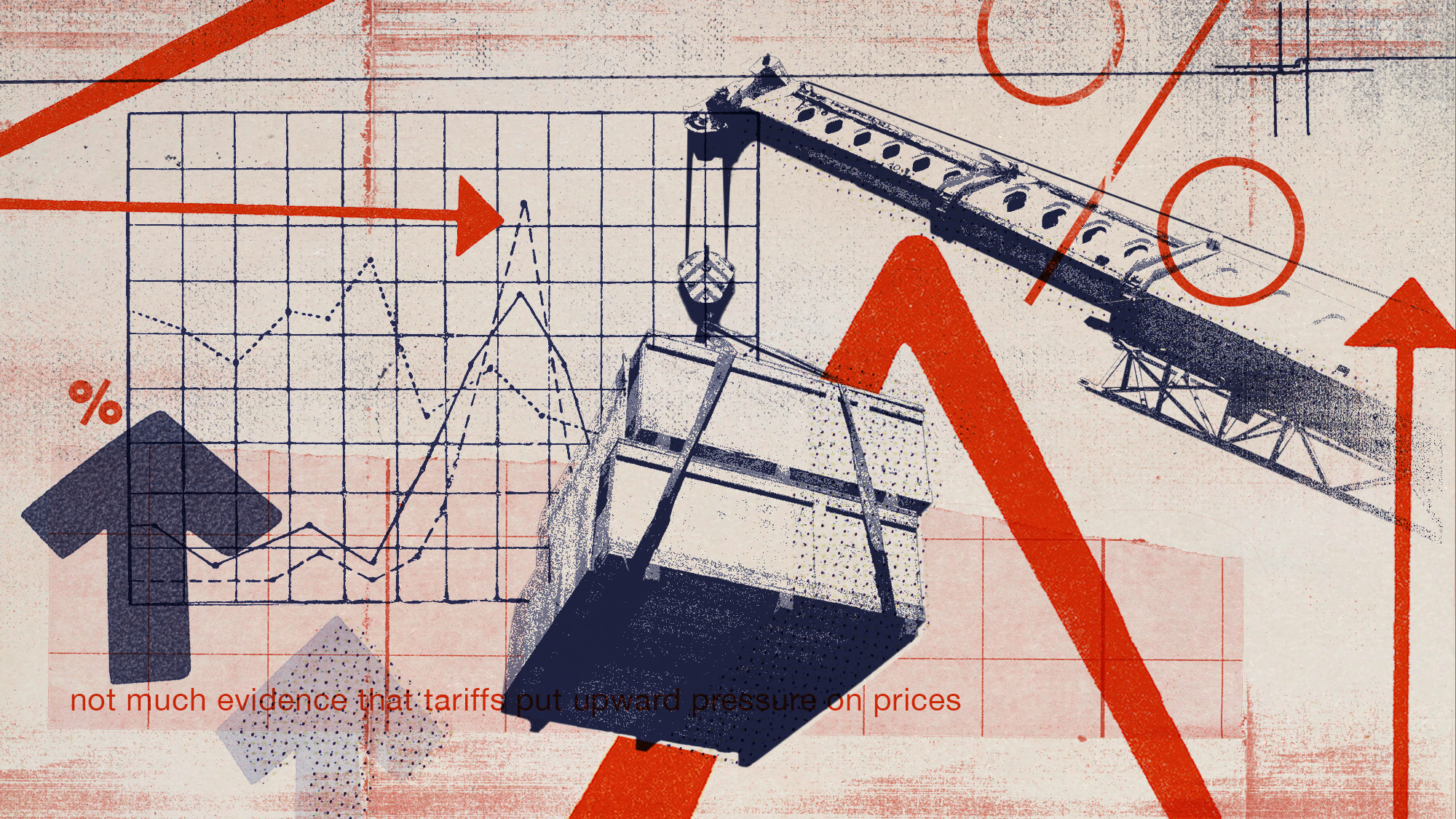Tariffs were supposed to drive inflation. Why hasn't that happened?
Businesses' planning ahead helped. But uncertainty still looms.


A free daily email with the biggest news stories of the day – and the best features from TheWeek.com
You are now subscribed
Your newsletter sign-up was successful
Remember a few weeks ago, when economic analysts predicted President Donald Trump's tariffs would spike inflation and maybe even cause a severe recession? It's not working out that way — at least not yet.
Prices in April rose at an "unexpectedly slow pace," said Politico. The latest Consumer Price Index from the government offered a "boost" to Trump and his "aggressive trade policies," showing that the cost of living grew at an annual rate of 2.3%. That is the "smallest increase since early 2021." The big driver of inflation was "housing-related," but there was not much evidence that tariffs put upward pressure on prices. Although Walmart said yesterday it would raise some prices due to tariffs, the overall effect of Trump's policies was "somewhat less widespread than I had expected," said Inflation Insights' Omair Sharif.
"Does this mean the economy is going to be fine?" asked Eric Levitz at Vox. While no one can answer that question with "certainty," two things seem true. First, Trump's policies are "still poised to raise prices and slow growth." But the likelihood of a "severe" disruption has now "fallen significantly."
The Week
Escape your echo chamber. Get the facts behind the news, plus analysis from multiple perspectives.

Sign up for The Week's Free Newsletters
From our morning news briefing to a weekly Good News Newsletter, get the best of The Week delivered directly to your inbox.
From our morning news briefing to a weekly Good News Newsletter, get the best of The Week delivered directly to your inbox.
Pre-stocking the shelves
This resilience is partly thanks to U.S. companies stocking up on inventory before the tariffs went into effect. What you see on shelves is "based on agreements that were made two to three months ago," said Morgan Stanley's chief economist, Michael Gapen, to The Wall Street Journal. Businesses pushed their uncertainty into the future, but risks still exist. Americans "can't take a lot of comfort in this report," said Andy Schneider, an economist at BNP Paribas.
"Not all price drops are created equal," said Matt Egan at CNN. Eggs, clothes and used cars all saw price declines in April. But that might actually be a sign of a "weakening economy." Widespread uncertainty about the economy has led to "fragile demand," forcing some companies to "lower their prices to lure customers." One example: The cost of airfare dropped 2.8% in April. That may be the result of "steady declines in international passengers" coming from Europe and Canada.
Uncertainty looms
The latest inflation data is likely the "calm before Trump's tariff storm," said Stephen Bartholomeusz at The Sydney Morning Herald. The real fallout of the president's trade wars "probably won't start to surface until next month" and will not be fully reflected in the data until the second half of 2025. The reality is that tariffs on imports to the U.S. are now, even with some temporary pullbacks, at their "highest rate since 1934." The problems have not shown up yet, but those high tariffs will "inevitably flow through to higher inflation and lower growth."
Jerome Powell is skeptical, said CNBC. The economy appears to be entering a period of "more frequent, and potentially more persistent, supply shocks," the Federal Reserve chair said Thursday. Powell has made clear that he expects tariffs to "slow growth and boost inflation," said CNBC. This means the Fed will keep interest rates higher as the economy "changes and policy is in flux."
A free daily email with the biggest news stories of the day – and the best features from TheWeek.com
Joel Mathis is a writer with 30 years of newspaper and online journalism experience. His work also regularly appears in National Geographic and The Kansas City Star. His awards include best online commentary at the Online News Association and (twice) at the City and Regional Magazine Association.
